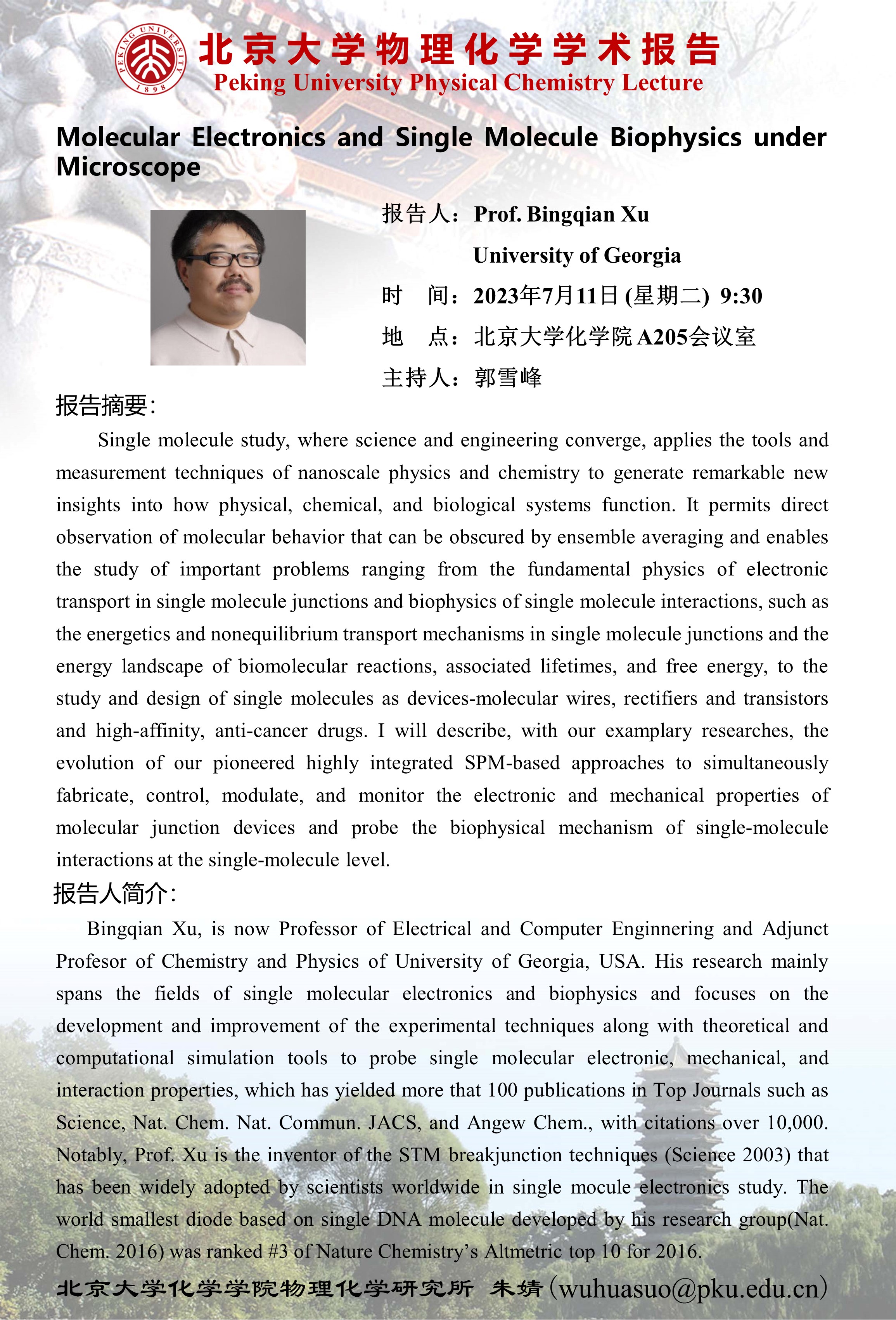Speaker: Prof. Bingqian Xu, University of Georgia
Time: 9:30 a.m., July 11, 2023, GMT+8
Venue: College of Chemistry and Molecular Engineering Room A205
Abstract:
Single molecule study, where science and engineering converge, applies the tools ancmeasurement technigues of nanoscale physics and chemistry to generate remarkable newnsights into how physical, chemical, and biological systems function. It permits direcobservation of molecular behavior that can be obscured by ensemble averaging and enablerthe study of important problems ranging fromthefundamental physics of electronictransport in single molecule iunctions and biophysics of single molecule interactions. such asthe energetics and nonequilibrium transport mechanisms in single molecule junctions and thenergy landscape of biomolecular reactions, associated lifetimes, and free energy, to the study and design of single molecules as devices-molecular wires, rectifiers and transistorsand high-affinity, anti-cancer drugs. I will describe, with our examplary researches, the volution of our pioneered highly integrated SPM-based approaches to simultaneously fabricate. control, modulate, and monitor the electronic and mechanical properties of molecular junction devices and probe the biophysical mechanism of single-molecule interactions at the single-molecule level.
Biography:
Bingqian Xu, is now Professor of Electrical and Computer Enginnering and AdjunctProfesor of Chemistry and Physics of University of Georgia, USA. His research mainlyspans the fields of single molecular electronics and biophysics and focuses onthdevelopment and improvement of the experimental techniques along with theoretical anccomputational simulation tools to probe single molecular electronic, mechanical, ancinteraction properties, which has yielded more that 100 publications in Top Journals such asScience. Nat. Chem. Nat. Commun. JACS. and Angew Chem. with citations over 10.000Notably, Prof Xu is the inventor of the STM breakjunction techniques (Science 2003) thathas been widely adopted by scientists worldwide in single mocule electronics study. Theworld smallest diode based on single DNA molecule developed by his research group(NatChem. 2016) was ranked #3 ofNature Chemistry's Altmetric top 10 for 2016.
Source: College of Chemistry and Molecular Engineering
